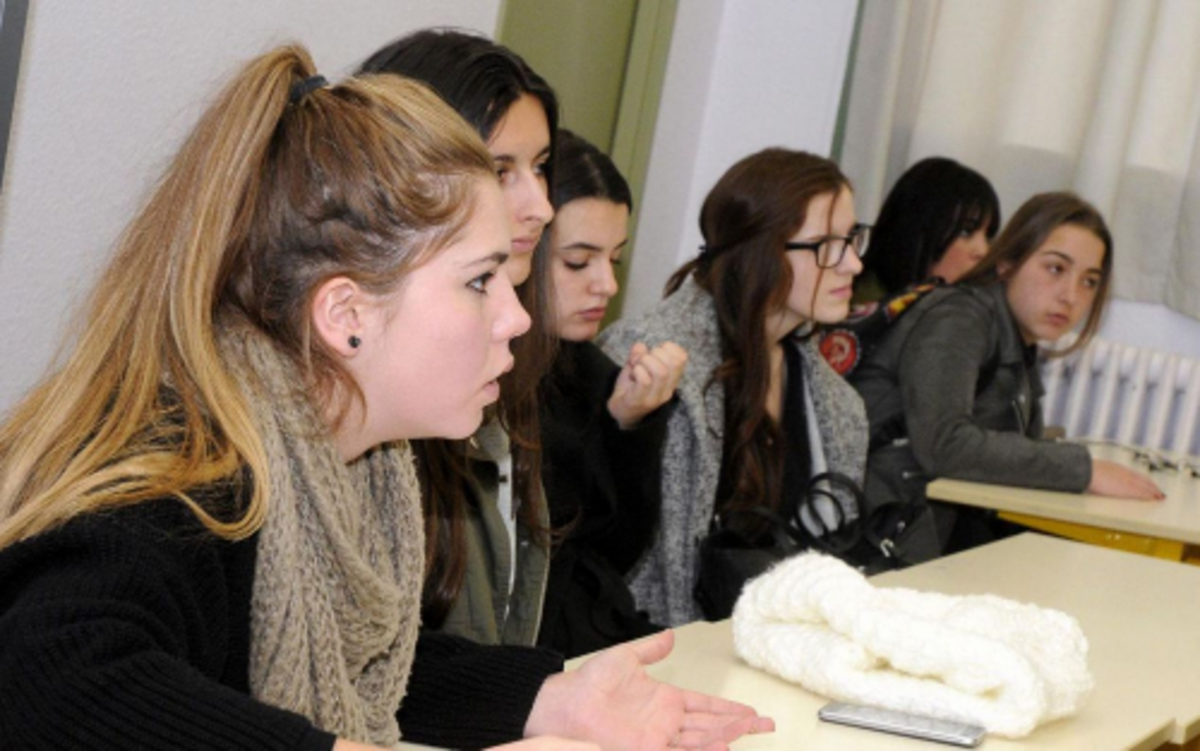
Article source: "A l'école, la laïcité reste un combat", Christel Brigaudeau, Le Parisien, 30/10/2017.
“If I say that religion is shit, does that offend you?” Addressing a class of eleven teenagers at a high school in the Southern city of Toulon, French lawyer Anne Dunan does not beat around the bush when discussing freedom of expression, blasphemy and profanity. She announces at the beginning of the session: “We're all equals here, so let's not mince words. You’re free to ask any questions you like.”
Dressed in a plum-coloured skirt and a sequinned top, the petite woman goes on to put some controversial Charlie Hebdo covers up on the board. Dunan is a barrister, rather than a teacher, and is determined to promote freedom of speech, which is often a challenge to really get across within the confines of a classroom.
Lively debate
As a community activist and a member of the Réserve citoyenne—a community citizenship initiative launched by the French education ministry to promote republican values in schools—Dunan has now been volunteering in secondary schools in the area for two years in a row. At the Toulon high school, her presentations are in big demand—the six majority female classes in the sixteen to seventeen year-old age group are due to attend her discussions this year. Headteacher Patrice Mascarte says, “Something talked about by an external speaker holds much more value than what teachers say because it’s an account of someone's real-life experience.” In this vocational school with around 500 students, two are already being monitored by the authorities as potential Islamic radicals, and a third has also been a source of concern.
Besides these specific instances, Brigitte Mir, a history and geography teacher, says,“It is very difficult to get students to look beyond the conspiracy theories. Some see terrorists like the Kouachi brothers or Mohammed Merah as people with guts who have put their ideas into action.”
17-year old Nour, on the other hand, makes it clear she believes terrorism ought to be condemned and combated. Presented with a Charlie Hebdo cover showing a dejected Prophet saying: “It's tough to be loved by morons”, she applauds and says, “I could definitely buy that.” She chuckles at a picture of François Hollande on a scooter with the caption: “Fast and Furious”. However, she cannot accept cartoons depicting the death of shipwrecked migrants, nor the right to 'blasphemy'. “I understand, but I don't agree with it”, she says.
Dunan’s room is half-empty, class numbers having been seriously affected by the flu and persistent absenteeism, but the discussions are lively. Sitting on the front row, 18-year old Sabrina stands firm on her beliefs: “Blasphemy should be against the law. If you criticise my religion, I’m the one who gets hurt.”
Another student, Lydia, thinks that there is “too much freedom of expression in France which is what causes problems.” Most of these students consider “criticising” synonymous with “bad-mouthing”. Recalling Voltaire and other Enlightenment thinkers, however, Dunan insists that, “criticism involves thinking things through.”
Real-life issues
Statistics suggest that the students of this particular Toulon high school are the most underprivileged within the regional education authority. “There are very few of these girls who do not have personal problems,” says history and geography teacher Catherine Waldet, “However, they are very open-minded and they need to talk. For them, these questions are not simply theoretical, they are real-life issues.”
Nour has been told twice while on the bus that she would be better off “going back to her [North-African] village”. Sabrina talks about being “hit and spat on” two years ago when she used to wear a full-face veil. She did not report the incident to the police, though. Now wearing a grey sweater and an nondescript pair of trousers, she says, “I changed the kind of clothes I wear.” But as soon as her classes are over, she takes the black headscarf and some pins out of her bag, and dons her hijab. “It's a part of my identity”, she adds.
Translated by Ragini Sekhar and Véronique Leblanc.
Editing by Sam Trainor.



